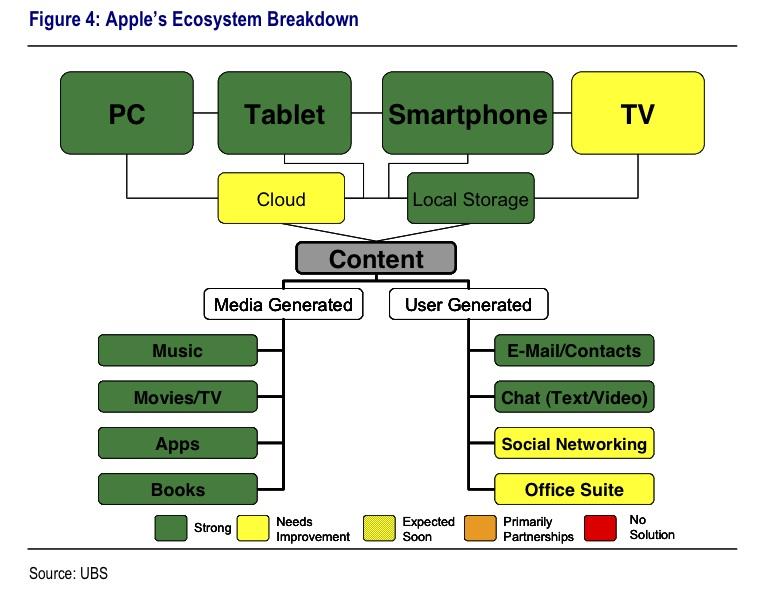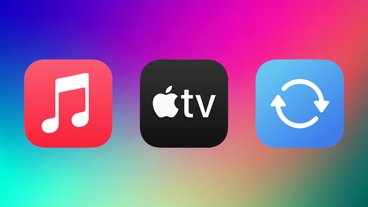Apple, Google and Microsoft to face off for 'digital living room'
Maynard Um with UBS Investment Research issued the report as a note to investors Wednesday. After analyzing each of the key players in the race for the "Global Digital Living Room," Um views Apple as a front runner because of its "head start in media-generated content" and strong ecosystems such as the App Store.
Um sees the "Global Digital Living Room," defined as the "ability to move and access content anywhere in the world," as the next step in the consumer market. It's a "holy grail" of seamless cloud-based access to "all types of content across all types of devices anywhere and at all times."
The race for this level of access is still in its "early stages," but Apple, Google, and Microsoft have emerged as the key players. Amazon, Samsung, and Sony are seen as "dark horses," and HP, Nokia, and Research in Motion are "challenged."
Google's strength lies in its early advances in cloud-based access and the accelerating growth of Android, but the company risks fragmentation at the hands of multiple hardware partnerships with varying specifications, Um wrote.
Microsoft has made early inroads into providing content on the TV with the Xbox and can leverage its domination of the PC OS market, but Um believes that Microsoft needs much tighter integration between platforms in order to succeed.
According to the report, Apple is the current winner of the "In-Home Digital Living Room battle," i.e. the "ability to move and access content within the home," and has a head start on going "global." The Cupertino, Calif., company "offers the most seamless access to one of the largest libraries of media-generated content (music & apps, in particular) on multiple screens in the home through iTunes."
UBS' breakdown of Apple's ecosystem highlights the well-established Mac, iPad, and iPhone platforms and the iTunes Music, Video, and App stores as strengths. TV integration, Cloud-based services, Social Networking, and Apple's Office Suite offerings are listed as "Needs Improvement."
UBS expects front-facing cameras in the next iteration of the iPad as part of Apple's push to ship FaceTime on even more devices. Um also predicts that FaceTime will get support for 3G networks in 2011 and spread to all Apple devices with front-facing cameras (including Macs).
Despite Apple's attempts to reinvent the Apple TV, UBS still views the updated device as "limited." In the future, however, UBS expects Apple TV to "evolve and offer more functionality."
Regarding Apple's weakness in cloud-based services, Um views Apple's nearly-completed North Carolina data center as an important investment for "the battle for the Global Digital Living Room." Without it, Apple would continue to fall behind Google and Microsoft on "cloud computing abilities."
Apple maintains a significant hardware advantage over its competitors. Recent attempts by Microsoft and Google to "get into the hardware game" resulted in failure. Google's Nexus One phone failed to meet expectations. Microsoft's youth-oriented Kin smartphone was short-lived, surviving just 48 days on the market.
On the downside, UBS views Apple's "closed ecosystem" as a potential risk for the company. Additionally, the difficulty of fully integrating all of Apple's platforms and services is another hurdle for the company.
 Josh Ong
Josh Ong











 Mike Wuerthele
Mike Wuerthele

 Malcolm Owen
Malcolm Owen
 Chip Loder
Chip Loder

 William Gallagher
William Gallagher
 Christine McKee
Christine McKee
 Michael Stroup
Michael Stroup







